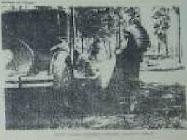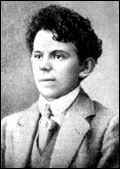In my (imaginary) American version of Russian Acmeism (the St. Petersburg poetry group of roughly 100 yrs ago), there are certain basic AA ABCs :
1. Making poetry is a free & independent activity, capable of constructing its own means & ends, with its own inherent value & meaning - something to cherish & enjoy, aside from any spiritual, religious, political, ideological or economic usefulness that others may demand or ascribe to it.
2. Yet AA "autonomy" differs from standard-brand Modern & Postmodern orientations, in that AA's independence is not dependent on revolt. There is no violent severing of the bonds of ordinary life, history, or culture in general. In other words, the freedom of a poem is not dependent on either a private (hermetic) language (a symbolic code) or upon verbal or logical incoherence of any kind.
3. To put this another way : in art & poetry, acts of free exchange, of sharing, are of the essence. But how does one share the unintelligible? One doesn't. The AA has a certain faith (or hope) in the ground of culture, no matter how storm-beaten & humanly corrupt & problematic & crisis-ridden. We are intelligent & intelligible beings; nature is fundamentally intelligible, if mysterious; poems want to participate in this circus of meaning.
4. In terms of aesthetics (let's say), the art work is a kind of thing, a quiddity, a distinct whole, distinct from everything else. We enjoy wholeness; we enjoy exploring the distinctness of things, their difference. Poetry is the art of the word. "The word as such," as the old Russian Acmeists used to say. Words themselves - the material of poetry - also exhibit wholeness, as well as sociability (as they join in the carnival of speech, grammar, sentences, style). The AA treats the wholeness of the poetic material with kindness & respect & care. Words are not torn violently from their milieu - at least not without some intelligible (if cryptic) purpose. Rather the AA poet seeks the elegance of the mot juste, & the rightness of the accurate statement. For the world as we know it deserves no less; and we know no other world. The unknowable remains, as Gumilev (the Russian Acmeist) says, what it is (unknown).
Subscribe to:
Post Comments (Atom)



No comments:
Post a Comment